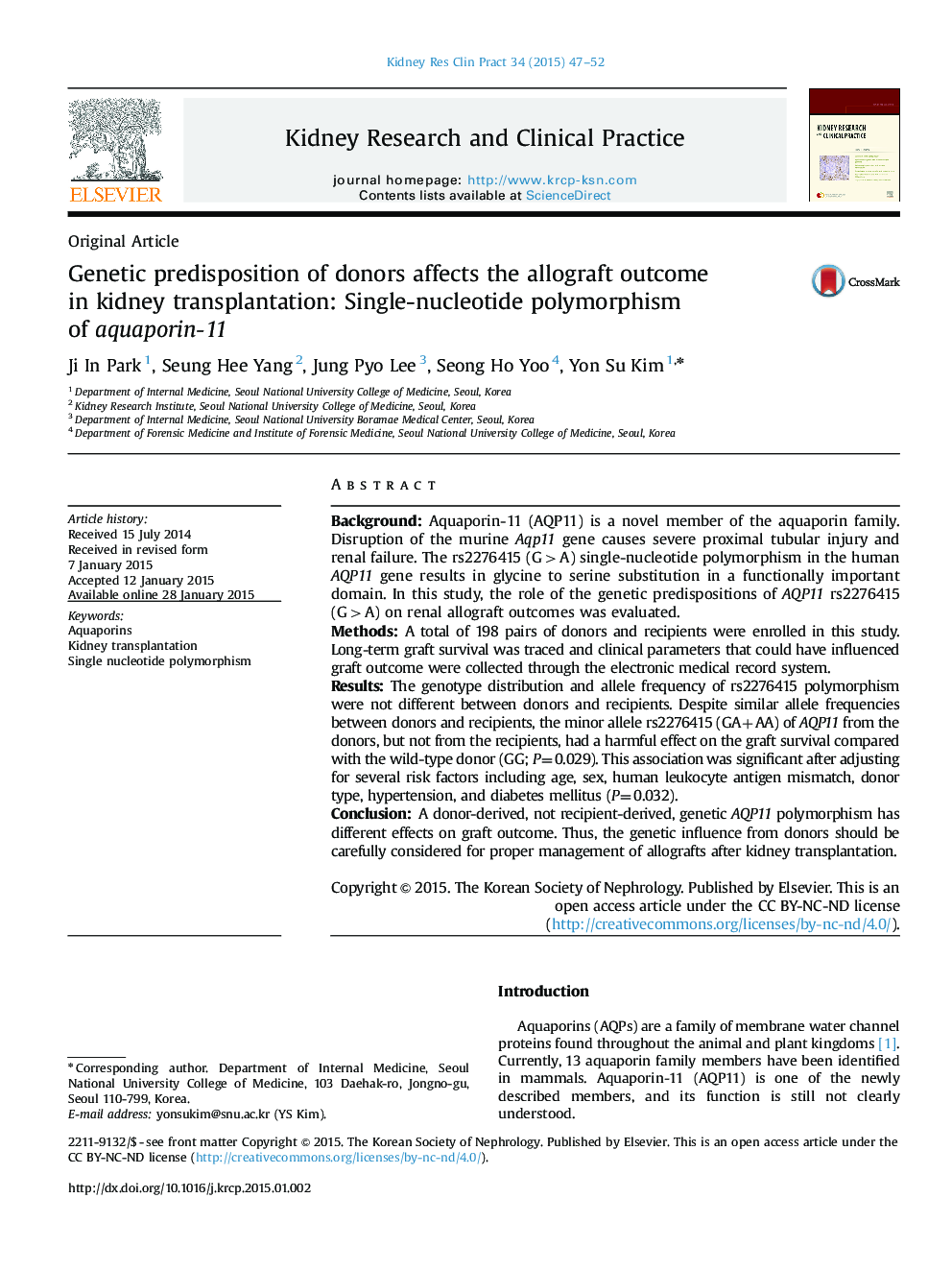| Article ID | Journal | Published Year | Pages | File Type |
|---|---|---|---|---|
| 3891826 | Kidney Research and Clinical Practice | 2015 | 6 Pages |
BackgroundAquaporin-11 (AQP11) is a novel member of the aquaporin family. Disruption of the murine Aqp11 gene causes severe proximal tubular injury and renal failure. The rs2276415 (G>A) single-nucleotide polymorphism in the human AQP11 gene results in glycine to serine substitution in a functionally important domain. In this study, the role of the genetic predispositions of AQP11 rs2276415 (G>A) on renal allograft outcomes was evaluated.MethodsA total of 198 pairs of donors and recipients were enrolled in this study. Long-term graft survival was traced and clinical parameters that could have influenced graft outcome were collected through the electronic medical record system.ResultsThe genotype distribution and allele frequency of rs2276415 polymorphism were not different between donors and recipients. Despite similar allele frequencies between donors and recipients, the minor allele rs2276415 (GA+AA) of AQP11 from the donors, but not from the recipients, had a harmful effect on the graft survival compared with the wild-type donor (GG; P=0.029). This association was significant after adjusting for several risk factors including age, sex, human leukocyte antigen mismatch, donor type, hypertension, and diabetes mellitus (P=0.032).ConclusionA donor-derived, not recipient-derived, genetic AQP11 polymorphism has different effects on graft outcome. Thus, the genetic influence from donors should be carefully considered for proper management of allografts after kidney transplantation.
